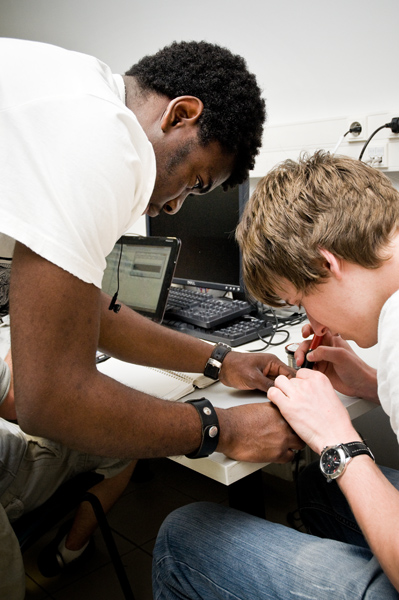Polytech Paris-Saclay has a large network of foreign partners:
- 5 double degree agreements
- 131 bilateral agreements in 25 countries around the world
International mobility at Polytech Paris-Saclay is mandatory to obtain the engineering degree: 8 weeks for apprentices and 12 weeks for students.
Students send their applications abroad depending on their professional projects.
They can also take advantage of the privileged links that Polytech Paris-Saclay has forged with universities in different regions of the world.
Students with full student status can spend part of their course abroad, either:
- During a dual curriculum leading to the award of an engineering degree from Polytech Paris-Saclay and a degree from the partner institution. In the latter case, the duration of the course is extended by one semester.
- During a study stay (one or two semesters in a partner university)
- For an internship, in 4th year and/or 5th year.
The International Relations Office (IR) assists engineering students in their mobility project.
The campus of the European University EUGLOH
The University of Paris-Saclay is one of the 5 campuses of the European University EUGLOH which has 4 other European campuses in Germany, Hungary, Sweden and Portugal. Take advantage of the opportunities offered by these campuses, either online or face-to-face in the host country. EUGLOH allows you to develop transversal skills, build your professional project, interact with students from all over the world, or deepen your knowledge in your field.
There are several types of study mobility:
- Go abroad as part of a double degree: UQAC (Canada), NTU (Taiwan), NCTU (Taiwan), BEIHANG (China), NSU (Russia).
- Go abroad as part of an exchange program : Erasmus+, BCI, MICEFA, TASSEP.
- Go abroad as part of a bilateral agreement: more than 70 international partners of the University of Paris-Saclay or Polytech Paris-Saclay (see map of partners).
Research
Polytech Paris-Saclay is part of the Université Paris-Saclay, ranked 1st in France (14th in the world) by the Shanghai world ranking (ARWU). 1st in the world in mathematics, 9th in physics (1st in Europe). Most of the school’s teachers are world-renowned researchers.
Thanks to the very strong connection with university research, students benefit from the excellence of the University’s research laboratories, in particular the Orsay Faculty of Science, but also the CEA, Inria, ONERA, etc. Research professors from the region, who are at the forefront of innovation, participate in the training courses alongside our industrial partners.
Polytech Paris-Saclay is supported by 20 research laboratories, and 142 research professors train our students. We also benefit from state-of-the-art equipment on our various platforms.
Student life/The campus
Life at Polytech Paris-Saclay is punctuated by the student union and its clubs where you can practice your passions: music, cheerleading, cinema, photos, sports, Pops Games, Manga, Kfet, outings, team-building weekends, sponsorship, programming, robotics, sustainable development, etc.
Right across the street from the school, Le Lieu de Vie offers restaurant facilities, with 200 seats for fast food on the ground floor and 800 for group dining on the second floor. Le Lieu de Vie also includes sports facilities for weight training, cardio training, fitness and dance, as well as two team sports fields on the roof.
You can also benefit from the very rich student life on the entire campus of the University of Paris-Saclay:
- Over 80 sports activities
- Many artistic, cultural and science-related events
- Over 600 student associations
- Over 30 libraries located throughout the university campus
The sustainable development and social responsibility approach (DDRS)
Since 2016, the Management of Polytech Paris-Saclay has sought to formalize the implementation of the Sustainable Development and Social Responsibility (DDRS) approach within the school: a number of actions have been undertaken during the past few years (for example, the introduction of courses related to sustainable development, projects with sustainable development as a context), and these projects deserve to be highlighted.

Key figures
820 engineering students
180 graduates per year
102 guest lecturers, industry and business managers
120 research professors
116 doctoral students
20 associated laboratories or research teams
197 international partners in 25 countries